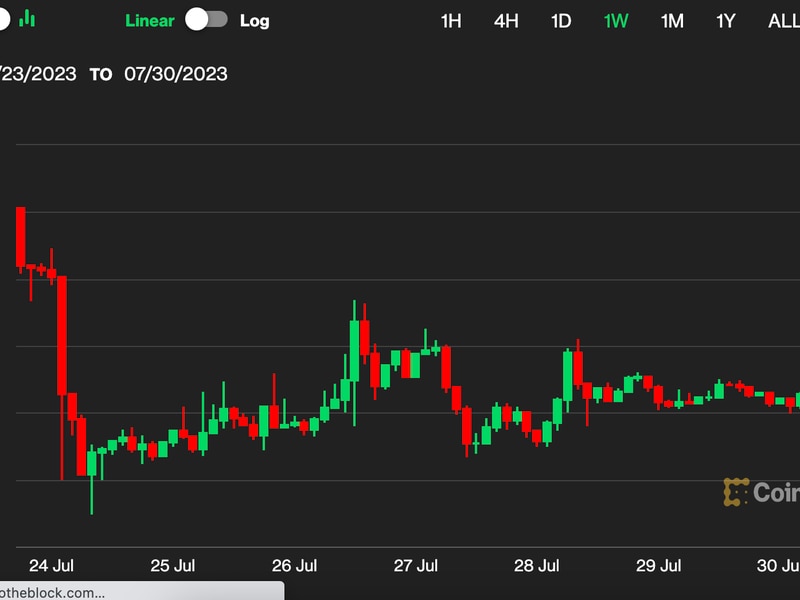Come In And Register? These Firms Say They Found an SEC-Friendly Crypto Path
The beginnings of a fully compliant U.S. crypto infrastructure may be forming on the industry’s fringes as a watchdog backed by the Securities and Exchange Commission (SEC) quietly issues significant approvals for companies trying to stick to the securities rulebook.
Last week, the Financial Industry Regulatory Authority (FINRA), an industry-funded oversight arm created by the SEC, announced that it approved its first broker-dealer with custody rights for digital assets securities – revealed Tuesday to be Prometheum Ember Capital LLC. And earlier this month, FINRA also gave OTC Markets Group a nod to join the handful of firms that can legally provide trading for crypto securities.
The broker-dealer approval – potentially an important milestone – went to a crypto firm, Prometheum Capital, that was purpose-built to comply with SEC regulations under the assumption that almost all tokens are securities under U.S. law. Aaron Kaplan, a securities lawyer who is the founder and co-CEO of parent company Prometheum Inc., said the firm will demonstrate that industry complaints about the absence of a path to U.S. compliance are mistaken.
“There is obviously a way forward for crypto in the United States,” Kaplan said in an interview. Those complaining about a lack of regulatory clarity “were trying to put a square peg into a circle hole,” he said.
Much of the crypto industry has accused the SEC of issuing impossible demands that companies conform to longstanding securities laws for registering exchanges, brokerages and the assets themselves. It’s becoming SEC Chair Gary Gensler’s rhetorical refrain to call on crypto firms to “come in and register” or face enforcement actions for securities violations.
U.S. crypto platform Coinbase (COIN), for instance, has been warned that an enforcement action is coming, and the company has pressed the agency in court on its unwillingness to provide crypto-specific rules or guidance.
Crypto lobbyists have pleaded with Congress to finally pass a law setting up a tailored structure for U.S. digital assets markets. But lawmakers have so far been unable to make lasting progress on the many bills that have been introduced, and the uncertainty continues this year.
Meanwhile, Prometheum Capital has not only been approved as a “special purpose broker-dealer” that can take custody of customer’s crypto assets – effective May 17 – but also as an alternative trading system (ATS) for digital assets securities. The company’s platform will go live in the third quarter, Kaplan said.
Its status as one of the first ATSs – a type of exchange that’s less intensely regulated than a “national securities exchange” – is now matched by OTC Markets, too.
OTC Markets, a well-established name in the trading of penny stocks and other securities outside of the major exchanges, is counting itself among the firms “actually trying to do things under what the SEC has put out there so far, as opposed to pushing back, saying we don’t fit under these rules,” said Cass Sanford, deputy general counsel, in an interview.
“It’s certainly going to be a long way until you have the more native crypto industry really get into this world,” Sanford said. “There are still some things to work out.”
Even as legal trading platforms emerge, questions remain about what assets they’ll be able to trade. As Gensler contends, the vast majority of crypto assets are unregistered securities, and so are in violation of securities laws. The only exception he acknowledges isn’t a security is bitcoin, and its position outside of securities law also means the most widely-traded crypto asset can’t appear on a securities exchange.
“We’re just trying to be prepared in the event that we do get clarity on which things are and are not securities,” Sanford said.
Kaplan, who wouldn’t yet identify which securities he anticipates will change hands on his firm’s exchange, contends that his platform will be able to handle the many digital assets that have sought exemptions from certain securities requirements. And unlike a full-fledged exchange, an ATS doesn’t work with a company to “list” a security, but only links up buyers and sellers to trade assets that the Prometheum Capital’s compliance operation decides meet the definition of securities.
He said that means investors could trade a token even if the project that created it is vehemently denying it’s a security.
Sanford has a different perspective, saying that a token’s backers would have to make proper public disclosures before it could be supported on the new ATS belonging to OTC Markets, which already handles 20 publicly traded crypto-linked securities. (These are currently wrapped in trust structures instead of trading directly.) She’s argued that tokens may be able to qualify as over-the-counter equity securities.
While such platforms work out how to meet securities requirements, the legacy crypto platforms are “quickly becoming obsolete” as they face U.S. regulatory pressures, Kaplan argued, because they’d have to rebuild themselves to comply with securities laws.
His company’s broker-dealer will also maintain custody of customer’s assets, which could be a particularly important point as the SEC considers a proposal that could require the investment advisers the agency oversees to keep customers’ crypto assets only with “qualified custodians” – a term that typically includes SEC-registered broker-dealers. It could mean Prometheum would arguably control “the only game in town” if it’s the sole broker-dealer regulated as a crypto custody provider.
As for whether it can expect pushback for its alignment with Gensler’s view, Kaplan said, “Investors are looking for platforms that afford them the proper protections.” And the institutions and retail investors his company expects to do business with will be drawn by the prices the firm offers for its services, which Kaplan described as “hyper-competitive.”









